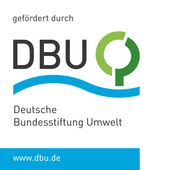Eco-Crossing
The key challenges in operational shipping are sustainable and optimal ship operation and the reduction of emissions. In international merchant shipping, weather routing is already being used to reduce energy consumption. Taking into account the ship's characteristics and the weather forecast, consumption-optimized routes are generated for voyages lasting several days or weeks, reducing energy consumption by up to 20%. This very high potential for consumption reduction is currently not fully exploited in ferry shipping. The main problem in transferring this principle to ferry shipping is that the necessary ship management systems do not exist for the typically short recurring routes and travel times, and data collection requires additional sensors or systems and their integration. According to initial studies, more than 20% of fuel consumption in ferry traffic can be reduced through optimized driving. Especially in currents and tidal waters, high fuel savings can be achieved if the strong environmental influences are better exploited for an economical driving style.
The following model calculation underlines the attractiveness and concrete relevance of the contribution to environmental relief: assuming a diesel consumption of 300,000 liters (2.64 kg CO2 per liter) of a ferry per year, approximately 159 tons of CO2 can be reduced and, at a price of 50 cents/L, approximately 30,000 € of operating costs of a ferry per year can be saved. In addition to the environmental aspect of reducing fuel consumption and thus emissions, reducing energy consumption also creates a cost advantage for ferry operations. Vessel operating costs are reduced and can be used to amortize a change in energy source in the ferry industry. This is where the planned project comes in. The advantage of the eco-crossing is that the tide-dependent changes in the direction of the current (e.g. on the Weser, Elbe and Wadden Sea World Heritage) can now be used to reduce consumption.
The main innovative feature of the Eco-Crossing project is the research, development and demonstration of an intelligent route optimization system that enables resource-efficient ferry operations. The goal of the project is to develop and test an innovative assistance system for river crossings, which, based on previous voyages and their fuel consumption, generates ecological route suggestions that are suitable for the environmental situation and supports the skipper in making an efficient voyage. To reduce fuel consumption, a recommended route (eco-route) is automatically determined in the context of the environmental conditions for the current point in time and suggested to the ship's command during practical ferry operations.
Eco-Crossing is not intended to automate the ferry system, but rather to focus on a practical and economically retrofittable innovative assistance system for route planning based on existing on-board sensors and additional systems for collecting environmental data as well as artificial intelligence methods. The innovative ship guidance system will be developed in a development process with professional mariners and tested and validated on board the ferry Farge on the river Weser. The associated ferry company FBS operates six ferries and is one of more than 300 ferry companies in Europe that provide ferry services on short routes. The project consortium consisting of Jade University of Applied Sciences and the German Research Center for Artificial Intelligence, in cooperation with the ferry operator FBS, aims to implement and demonstrate the system in practice on the selected ferry route on the River Weser with a high frequency timetable, thus ensuring that other shipping companies will also recognize the optimization potential for reducing emissions from the existing fleet in the future. The ambitious project is supported by associated partners from the maritime industry, authorities and interest groups. The results will serve as a multiplier for the adaptation of the technology in the ferry industry. Other associated project partners are actively involved in the project and can facilitate subsequent developments for the sustainable promotion of the DBU.
Partners
- Jade Hochschule


